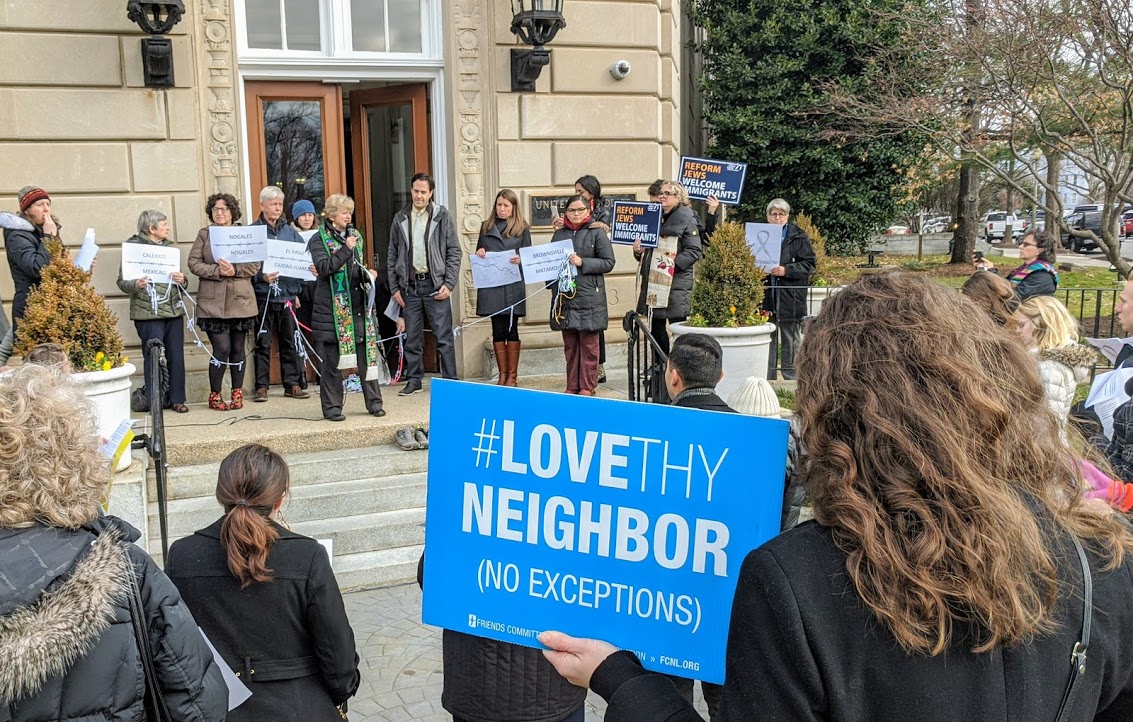Migration & Human Trafficking
April 30, 2023
April 2023
By Sr. Pat Murphy, RSM, and Sr. JoAnn Persch, RSM
For 12 years, from 2010 to 2022, we visited four immigration detention centers in Illinois and Wisconsin – making virtual visits during the pandemic. The information we are sharing came from men and women we met in the jails.
Often people are recruited in their home countries to come to the United States with the promise of a good job. Because their families are so in need of money, the people come. The trafficker pays their plane fare and when they arrive in the United States, they are beholden to the trafficker and forced to pay back the money with interest. This constitutes labor trafficking.
These trafficked persons are put in congregate housing with others in the same situation. Their documents are taken from them, and they are essentially prisoners. They are not permitted to go out on their own. The money they earn is kept until they have paid back what they owe, which keeps increasing because of interest. When and if they are able to get away, they might be picked up by ICE, especially if they are in a car, or in an altercation with someone.
For the women, it may be labor trafficking, sex trafficking, or both. For example, if a woman is taken into a home to be a live-in nanny or housekeeper, she often becomes slave labor. The woman has no time off and, again, no access to her documents and no freedom. The man of the house may sexually abuse her while she is living in the house.
Sometimes the coyote (the person to whom immigrants pay much money to get them into the United States) takes immigrants’ money and then turns them over to traffickers. In the case of women, it is often sex traffickers.
Undocumented immigrants who make it into the United States on their own are very vulnerable if they do not have family or a sponsor in the country. Since they are not permitted to work legally for a long time, they are desperate to find people who will pay them “under the table.” Often, they find work in factories, restaurants, or other work situations where they are exploited with low wages. ICE might pick them up in these settings, or if the immigrants complain about the low wages, the employer threatens to turn them over to ICE.
Young women, especially, are told that they are beautiful and can get good jobs through modeling or working for families; in reality they are pulled into sex trafficking.
For the unaccompanied minors in the Children’s Homes in Chicago, if the city is unable to find a family member or friend willing to take them in, they go into foster care. Sad to say that even when the people who agree to take them are vetted, we still see cases of trafficking. We just learned of a situation where the “good man” who took a child into foster care was a pimp. Recently we all heard the NY Times story that revealed that young immigrant children were put into dangerous work situations like in meat packing plants. Also sadly, when these dangerous operations are exposed, it is typically the immigrant man, woman, or child who is taken into custody and deported. The perpetrators often go free.
Sister Pat Murphy has been a Sister of Mercy for 75 years and Sister JoAnn Persch for 70 years. In 1990 they opened Su Casa Catholic Worker Community for Central American refugees seeking asylum. Working with the Margery Kovler Center for Survivors of Torture, the sisters lived in community with Central American men, women, and children who were survivors of torture including Sister Dianna Ortiz, a North American.
In 2007, Sisters JoAnn and Pat prayed outside the ICE deportation center in Broadview, IL. From that prayer grew an organization they founded, the Interfaith Community for Detained Immigrants. More than 16 years later the prayer and the organization continue.
The two sisters advocated for the passage of a law in Illinois in order to gain access to the detention centers; the Access to Religious Ministry Act passed unanimously in the IL House and Senate on November 20, 2008 and became law in June 2009. In addition to setting up two long-term post-detention houses for immigrants, the sisters established a hotline to enable team members to pick people up and get them to the bus station when released from detention.
At this writing, the sisters are involved with an interfaith group that helps immigrants who came north on the buses from the border. Mercy Associates (lay partners of the congregation’s) are sponsoring a family and the sisters are helping them secure other supports, including legal assistance.
Category:

